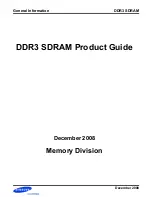
National Instruments Corporation
4-1
AT-MIO/AI E Series User Manual
Signal Connections
Chapter
4
This chapter describes how to make input and output signal connections
to your AT E Series board via the board I/O connector.
The I/O connector for the AT-MIO-16E-1, AT-MIO-16E-2,
AT-MIO-16E-10, AT-MIO-16XE-10, AT-AI-16XE-10, and
AT-MIO-16XE-50 has 68 pins that you can connect to 68-pin
accessories with the SH6868 shielded cable or the R6868 ribbon cable.
With the SH6850 shielded cable or R6850 ribbon cable, you can
connect your board to 50-pin signal conditioning modules and terminal
blocks.
The I/O connector for the AT-MIO-64E-3 and AT-MIO-16DE-10 has
100 pins that you can connect to 100-pin accessories with the
SH100100 shielded cable. With the SH1006868 shielded cable you can
connect your board to 68-pin accessories, and with the R1005050
ribbon cable you can connect your board to 50-pin accessories.
I/O Connector
Figure 4-1 shows the pin assignments for the 68-pin I/O connector on
the AT-MIO-16E-1, AT-MIO-16E-2, AT-MIO-16E-10,
AT-MIO-16XE-10, AT-AI-16XE-10, and AT-MIO-16XE-50.
Figure 4-2 shows the pin assignments for the 100-pin I/O connector on
the AT-MIO-64E-3. Figure 4-3 shows the pin assignments for the
100-pin I/O connector on the AT-MIO-16DE-10 . Refer to
Appendix B, Optional Cable Connector Descriptions, for the pin
assignments for the 50-pin connectors. A signal description follows the
connector pinouts.
Warning: Connections that exceed any of the maximum ratings of input or output
signals on the AT E Series boards can damage the AT E Series board and
the PC. Maximum input ratings for each signal are given in Tables 4-1
through 4-4 in the Protection column. National Instruments is
NOT
liable
for any damages resulting from such signal connections.
















































